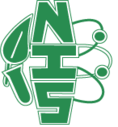Our Organization
The National Institute of Science (NIS) is one of the oldest national scientific membership organizations to serve students and staff from Historically Black Colleges and Universities. For more than sixty years, the organization has allowed students and educators a forum for the exchange of ideas and research, in the disciplines of mathematics and science. With year-round academic activities, mentoring and networking events for our members – NIS continues to maintain its’ mission of establishing a multifaceted learning environment for those who become a part of our organization. As a non-profit 501(c)(3) organization – the National Institute of Science (NIS) is continually striving to increase the numbers of well-trained minority scientists by giving students the necessary academic support, research experience, internship opportunities and career choices needed to become top working professionals. This is achieved through a scientific network of students, educators and research scientists, committed to the success of our organization.

.jpg)
.jpg)
.jpg)